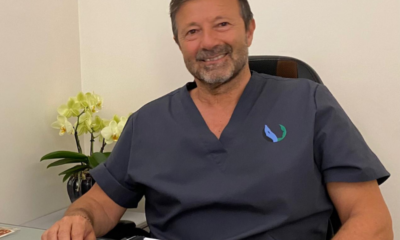Revée pills
Mental Health

Feeling well with oneself, having hope for the future and always fighting for it. When facing a disease, mental health is as important as physical health.
During the month dedicated to mental health and psychological well-being, Revée News will revisit some of the interviews conducted with surgeons and therapists who faced this subject from different points of view.
Science, mind and body
“We know enough about the brain, but not enough about the mind”. Paolo Valerio, Honorary Clinical Psychology Professor for Federico II University of Napoli, Honorary President of the University Language Center Ateneo Sinapsi. In his interview, he tells of the difficulty that science encounters when trying to explain how the mind develops and faces emotions: «We still do not have undoubtedly certain scientific explanations on how a mass of neurons can feel, suffer, and create emotions. No one has ever given a scientifically sound answer about the cartesian dilemma of the relationship between body and mind».
And this dilemma is the one that jeopardizes science. While great progress was made for physical health, the same cannot be said for mental health. For example, during surgery, doctors have to take care of both the body and mind of the patient, especially when performing aesthetic surgery. «It is important to understand if what is asked of us is the real solution to the patients’ problem».
Bariatric surgery is one of the cases where the patient is followed by a therapist starting from the first visit up to after the operation. «When we do Sleeve or Mini Bypass surgeries – Rosario Ranno, Plastic and Large Burns Surgery Complex Surgery Operating Unit Director and National Councilor SICPRE says – then patients must be ready to accept every sacrifice linked to it».
Facing the change
Taking care of mental health is pivotal when facing a change in one’s own life, especially if dealing with cancer. For example, breast cancer has a long course with the possibility of relapse, and also requires a surgical operation on a delicate organ. «Physical change challenges the idea people have of themselves» Monica Agnesone, psychotherapist and head of business psychology for the ASL Città di Torino, states. «Often, the body becomes an enemy, a stranger. Patients view surgical treatment for breast cancer as a painful, hard to understand experience, akin to mutilation».
In these cases, psychological support aims to inform the patient during the full treatment, as doctors should always put the patients’ mental health on top of their priorities.
Cristina Sartorio, a medical doctor that practices aesthetic medicine in Turin, says in her book “La Bellezza dell’Imperfezione” that women who want to nurture their well-being can do it by simple, easy steps repeated during the day and during difficult moments too. Sartorio highlights that sometimes imperfection may be a characteristic of the individual, something to be preserved and not deleted by surgery.
«We should always understand if the patient has a correct consideration of their own body – Chiara Stocco, a plastic surgeon who operates in the UAE after studying at the University of Padua and Trieste says – because in some cases the problem may lie in dysmorphobia, meaning that patients see in themselves enormous defects and have impossible expectations of their bodies».
How to overcome trauma
Sometimes the body’s perception is shaped by trauma and violence suffered throughout our life. A scar, a wound can be the outcome of an aggression, and in this case doctor and patient have to work together to confront complex issues that may require the intervention of different professional figures.
Doctor Giorgio Merlino, Head of the Plastic Surgery, Hand Surgery and Microsurgery ward at the Maria Vittoria Hospital in Turin, carried out a complex surgery on a woman who was a victim of violence by her partner.
The surgeon explained how surgery is carried out as normal, but in these cases, after the operation, there is the need to follow patients thoroughly. «It is clear that these women fear surgery, but they absolutely need it» the doctor says. «The operation follows the same rules as other trauma-induced operations». However, in these cases doctors structure a thorough aftercare to help the patients with therapy and comfort.
A steady hand is not the only thing that can make a patient satisfied with the surgery, they need constant psychological support during the whole process, as says Ettore Madaro, Head of Maxillofacial Surgery at the Koelliker hospital in Turin. «New clinical courses, both inside the Koelliker and in other structures, are rethinking the role of the psychologist. We need their aid to help patients overcome the treatment period, namely the period where they lack both function and aesthetics».







































